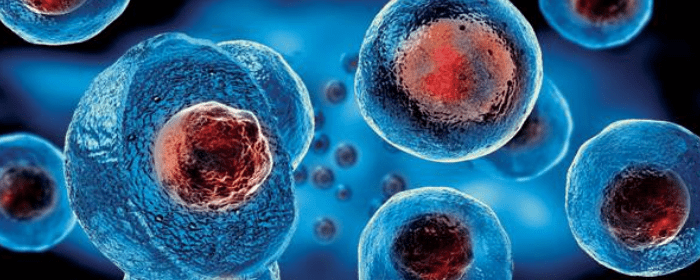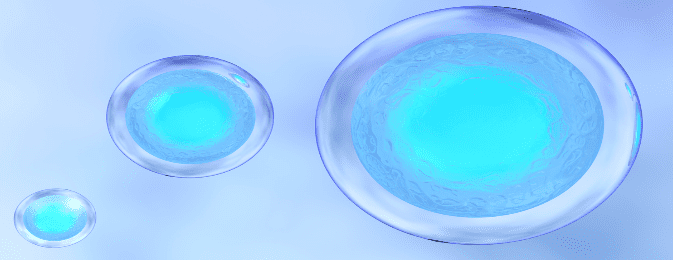
by admin | Jul 8, 2020 | Multiple Sclerosis, Stem Cell Therapy
The most common form of multiple sclerosis is a relapsing-remitting MS. In relapsing-remitting multiple sclerosis, patients have relatively quiet, healthy times interrupted by disease flares. MS flares can cause many different neurological symptoms. The disease can interfere with any number of bodily processes, from walking to seeing, to urinating.
For many years, the only treatments available for relapsing-remitting MS were steroids or other powerful medications that had troubling side effects. Recently, disease-modifying drugs have become available that extend the times in between flares. Steroids are still used to treat disease flares, but disease-modifying drugs seem to make those flares occur less often.
One way that scientists judge the value of disease-modifying therapy for relapsing-remitting MS is to see how long it can prevent relapse. For example, researchers divide a group of patients into two groups, give each group a different treatment, and track to see the time until a relapse occurs.
Researchers took this same scientific approach to compare disease-modifying therapy to nonmyeloablative hematopoietic stem cell transplantation which is the infusion of stem cells without destroying the patient’s existing bone marrow and stem cells with chemotherapy. The results were published in the prestigious Journal of the American Medical Association (JAMA).
The scientists from hospitals and institutions around the world followed about 100 women with relapsing-remitting multiple sclerosis. Half received disease-modifying therapy, which is the current standard of care, while the other half received stem cell therapy.
During the first year of the study, the symptoms were more severe in patients who received disease-modifying therapy. This was expected since patients with this form of MS tend to get worse over time. Impressively, the group who received stem cell treatment had less severe symptoms than when they started a year earlier.
Three patients who received stem cell therapy experienced disease progression; however, a staggering 34 patients in the disease-modifying group had disease progression. In other words, far fewer RRMS patients in the stem cell therapy group had disease progression than those receiving standard disease-modifying treatments.
The authors of this groundbreaking study mention that “further research is needed to replicate these findings,” presumably in a double-blind trial. Nevertheless, this is not a small study (~100 patients) and patients were followed for a very long time (5 years). As such, the results provide strong, preliminary evidence that stem cell therapy was more effective than disease-modifying therapy for patients with
Reference: Burt, R., et al. (2019). Effect of Nonmyeloablative Hematopoietic Stem Cell Transplantation vs Continued Disease-Modifying Therapy on Disease Progression in Patients With Relapsing-Remitting Multiple Sclerosis. JAMA. 2019;321(2):165-174.

by admin | Jun 29, 2020 | Multiple Sclerosis, Mesenchymal Stem Cells, Stem Cell Therapy
Multiple sclerosis is an inflammatory disease of the brain and spinal cord. The immune system mistakenly attacks the covering of nerve axons called the myelin sheath. Just as an electrical cord that has lost its insulation cannot work properly, so too is it with nerve cells that have been destroyed by MS. Unfortunately, when electrical signals (action potentials) cannot move through axons, it causes neurological problems and disability. People with MS may lose the sense of touch, the sense of sight, the ability to move or walk, and the ability to control bowel or bladder function.
While treatments for MS are intended to reduce inflammation, no treatment has been developed that can repair damaged nerve cells. Scientists recently reviewed the status of stem cell clinical trials to treat multiple sclerosis. The results are encouraging.
No fewer than 8 clinical trials have shown that mesenchymal stem cells can be safely used in patients with MS. Moreover, the phase 2 clinical trials within this group showed that various stem cell treatments reduced the severity of MS. This is especially important because mesenchymal stem cells actually reduced the number of lesions (areas of inflammation and injury) in patients with MS compared to placebo.
Importantly the review determined stem cells were able to improve MS disease and nerve destruction regardless of whether the stem cells were collected from fat tissue, umbilical cord, or bone marrow. Stem cells retrieved from fat (i.e. adipose) reduced MS relapses and delayed the progression of the disease. Likewise, fat-derived stem cells improved sexual satisfaction and improved bowel control 12 months after treatment.
Why are the results of fat-derived stem cells so exciting? Because bone marrow can be difficult to access and umbilical cord tissue must be collected from donors. On the other hand, virtually everyone has excess fat on their bodies. This fat can be safely and easily removed with a simple extraction such as liposuction. A patient’s own fat cells can be removed, processed, and re-infused as stem cell treatment. When someone uses their own stem cells, there is no risk that the body will reject the infusion (as could theoretically happen to donor stem cells).
These results are exciting and welcome information for those who suffer from multiple sclerosis. As larger clinical trials are performed and previous results are replicated, we may see an increase in stem cell treatment options to help manage the symptoms of multiple sclerosis.
Reference: Bejargafshe, M., et al. (2019). Safety and efficacy of stem cell therapy for treatment of neural damage in patients with multiple sclerosis. Stem Cell Investigation. 2019; 6:44.

by Stemedix | Jun 22, 2020 | Stem Cell Therapy, Multiple Sclerosis
Multiple sclerosis (MS) poses distinct challenges for many individuals. Not only does it present an array of frustrating symptoms ranging from muscle weakness and numbness to vision and bladder problems, but in some patients, it may resist medications altogether. For patients in search for an alternative option for relapse-remitting MS, researchers at Duke University School of Medicine are exploring a new potential therapy in a clinical trial: stem cell transplantation.
The trial, which is highly selective and randomized, will test the efficacy of stem cell transplantation of bone marrow against several different immune reconstitution therapies. Participants will include patients for whom disease-modifying therapies have been ineffective in the past.
While the study’s investigators acknowledge the risks that come with immunosuppression, they are also optimistic in the treatment’s ability to manage some of the most progressive forms of MS, calling stem cell transplantation “one of the most promising therapies” for the condition. By reconstituting the immune system through suppression and then introducing stem cells, the objective is to combat the inflammatory flares that occur in the brain and spinal cord every 12 to 15 months in this form of MS.
Immune reconstitution has already shown promise in the past, and people with MS who have undergone the treatment have witnessed the absence of new symptoms several years after pursuing the therapy. Compared to existing therapies, many of which have been around since the early 1990s, the treatment could hold enormous potential under the right circumstances. The trial’s team is working diligently to mitigate potential risks and thoroughly examine any individual risk factors with prospective participants. Contact a Care Coordinator today for a free assessment!

by Stemedix | May 18, 2020 | Multiple Sclerosis, Stem Cell Therapy
Multiple sclerosis (MS) is an autoimmune disease that’s increasing in prevalence over the past few decades. According to the National MS Society, more than one million people live with multiple sclerosis in the United States alone. Globally speaking, MS is diagnosed in around 2.3 million patients, with hundreds of new cases every week. Interestingly, people who live in the Northern or Southern extremes of the planet are at a higher risk to develop MS than their counterparts.
Unfortunately, MS is a chronic, progressive condition with no curative treatment.
Multiple Sclerosis and its Impact on Brain Cells
The pathophysiology of MS is quite complex and involves the auto-destruction of the central nervous system (CNS) tissue by antibodies and immune cells. The main target of the immune reaction is the myelin sheaths found on neurons to facilitate electrical conduction. Unfortunately, those myelin sheaths also provide protection for neurons to maintain their optimal function.
Additionally, the inflammation mediated by the immune system damages the integrity of neurons, leading to the loss of millions of cells that play a crucial role in the function of the CNS. Another frustrating aspect of this malady is the recurrent relapses, where patients experience vision problems, muscular weakness, reduction in mobility, and balance issues even with adequate pharmacological therapy.
Today, there is one treatment option that is considered an alternative option to one’s journey to wellness and improvement of symptoms – stem cell therapy.
Stem cell therapy and Neural Damage
Mesenchymal stem cells (MSCs) have incredible regenerative and repairing properties due to their multipotent characteristic that allows them to differentiate into different body tissues. MSCs can be obtained from adipose tissue, bone marrow, umbilical cord (Wharton’s Jelly), and placenta.
For many years, researchers conducted studies to see if MSCs benefit patients with multiple sclerosis, and many results showed positive benefits.
For instance, in a 2019 study published by Stem Cell Investigation, researchers stated that “Upon intravenous injection, MSCs are able to traffic into the brain lesions and improve the survival rate of brain cells.” Although scientists are still researching the underlying mechanism that led to these results, the positive effects of MSCs are attributed to their regenerative, self-renewal, and immunomodulating properties.
One of the most appealing type of stem cell therapy is the umbilical cord-extracted MSCs because of the site’s accessibility, their potentcy, and the absence of any ethical issues. Overall, the scientific community believes that MSCs have great potential in the treatment of Multiple Sclerosis and other neurodegenerative conditions.
Stem cell therapy research has increased over the past few years and is making impacts in the history of medicine and biology. The regenerative properties of these cells has opened a new chapter in the management of conditions and their symptoms that can impact a person’s day to day life. Contact us today for a free consultation.

by Stemedix | May 4, 2020 | Stem Cell Therapy, Multiple Sclerosis
Multiple sclerosis (MS) is a condition that affects the central nervous system, disrupting the ways in which information flows within and to and from the brain. Its cause is unknown, though experts believe it may result from a combination of genetic and environmental factors. The trajectory and symptoms of the disease are often unpredictable. People with MS may experience symptoms related to movement, such as tremors or unsteady gait, as well as vision-related changes, slurred speech, tingling or numbness, and fatigue.
MS symptoms typically begin to emerge between the ages of 20 and 50. For some individuals, symptoms may improve or go into remission for periods of time. In some cases, MS symptoms can interfere with daily life, making it difficult to complete everyday activities.
While there are currently no cures available for MS, there are some medications available to aid in symptom management. Yet, these can be costly and may carry side effects.
Stem Cell Therapy for Multiple Sclerosis
Recently, stem cell therapy for Multiple Sclerosis has emerged as a promising treatment with tremendous potential. It is not a cure but has shown potential for symptom improvements. Mesenchymal stem cells (MSCs) have the ability to help control inflammation and restore the myelin sheath, the protective covering that surrounds nerve fibers which is damaged in MS. These powerful cells also have the ability to regulate the immune system, which can aid in symptom reduction.
The reason the immune regulating effects of MSCs are so beneficial to people with MS is that they prevent the immune system from mistakenly attacking the myelin sheath. MSCs may even regenerate myelin sheath where it’s been damaged, known as remyelination.
While results may vary, MS patients who receive stem cell therapy may experience a number of benefits. Some reported include increased energy, strength, mobility, flexibility, and function control. The treatment is also noninvasive, well-tolerated in most patients, and does not require any downtime. With its lasting beneficial healing properties, stem cell therapy appears to be an alternative option, especially for patients whose symptoms interfere with daily life.
If these beneficial healing properties are something you would like to take advantage of then contact us today for a free consultation.

by admin | Mar 19, 2020 | Multiple Sclerosis, Mesenchymal Stem Cells
Multiple sclerosis is a chronic neurological disease that
affects the brain and spinal cord. In multiple sclerosis, an immune reaction
breaks down the covering around neuronal axons, myelin. Depending on where in
the brain or spinal cord this inflammation occurs, patients with multiple
sclerosis may experience weakness, a lack of sensation, double vision, difficulty
walking, difficulty with balance, problems with urination, dizziness, and/or
pain. Over time, patients with multiple sclerosis require assistive devices
such as canes or wheelchairs to get around, and some ultimately become
bedridden.
Multiple sclerosis can be divided into 4 types:
Clinically isolated syndrome – The first episode of MS; about two-thirds of people with a clinically isolated syndrome of MS will go on to have one of the other types listed below
Relapsing-remitting – Patients have symptoms for a
time, which resolve, but then eventually return
Secondary progressive – After some cycles of flare-ups
and remissions, the disease is present all the time; some patients with
relapsing-remitting disease develop secondary progressive MS
Primary progressive – Once symptoms start, they do
not resolve but instead get progressively worse
Fortunately, there are some treatments that can change the
course of multiple
sclerosis. There are several disease-modifying agents available for people
with relapsing-remitting disease and a few for progressive multiple sclerosis.
These drugs can reduce the rate at which symptoms get worse or extend the
length of time between flare-ups. Unfortunately, not everyone can tolerate
these drugs, and, in others, the drugs are not very effective. None of these
drugs is a cure for multiple sclerosis.
Researchers have turned to mesenchymal
stem cells as a possible treatment for multiple sclerosis. These cells have
the ability to regulate the immune system and support the nervous system. There
have been so many clinical trials of stem cells in multiple sclerosis that
researchers can now perform a meta-analysis on them. A meta-analysis is a
special study in which all trials on a particular topic are combined and
analyzed, i.e., a study of studies.
In their recent meta-analysis, Dr. Zhou and co-authors identified 9 clinical studies using mesenchymal stem cells to treat multiple sclerosis. They found that the rate of disease progression with stem cell treatment was 16% at 6 months and 35% at 1 year. This is a faster rate of decline than disease-modifying treatment, but better than no treatment at all. Importantly, the MS patients treated with stem cells had much more severe disease than average—it was a group for whom disease-modifying treatment had failed. From this perspective, stem cell treatment for MS was a great success.
Most patients had no evidence of disease activity at 6
months (72%) and 1 year (62%) after autologous
mesenchymal stem cell treatment. This a substantial duration of time to be
disease-free.
The authors noted that stem cells transplanted via the intrathecal
route (i.e. directly in the cerebrospinal fluid) resulted in a slower
progression of disability.
Taken together, these results are encouraging. The authors also concluded that mesenchymal stem cell treatment was safe. More work with larger patient groups are needed, but this is an exciting avenue of research.
Reference: Zhou, Y., et al. (2019). Autologous Mesenchymal
Stem Cell Transplantation in Multiple Sclerosis: A Meta-Analysis. Stem Cells
International. 2019, Volume 2019 |Article ID 8536785.







 St. Petersburg, Florida
St. Petersburg, Florida
